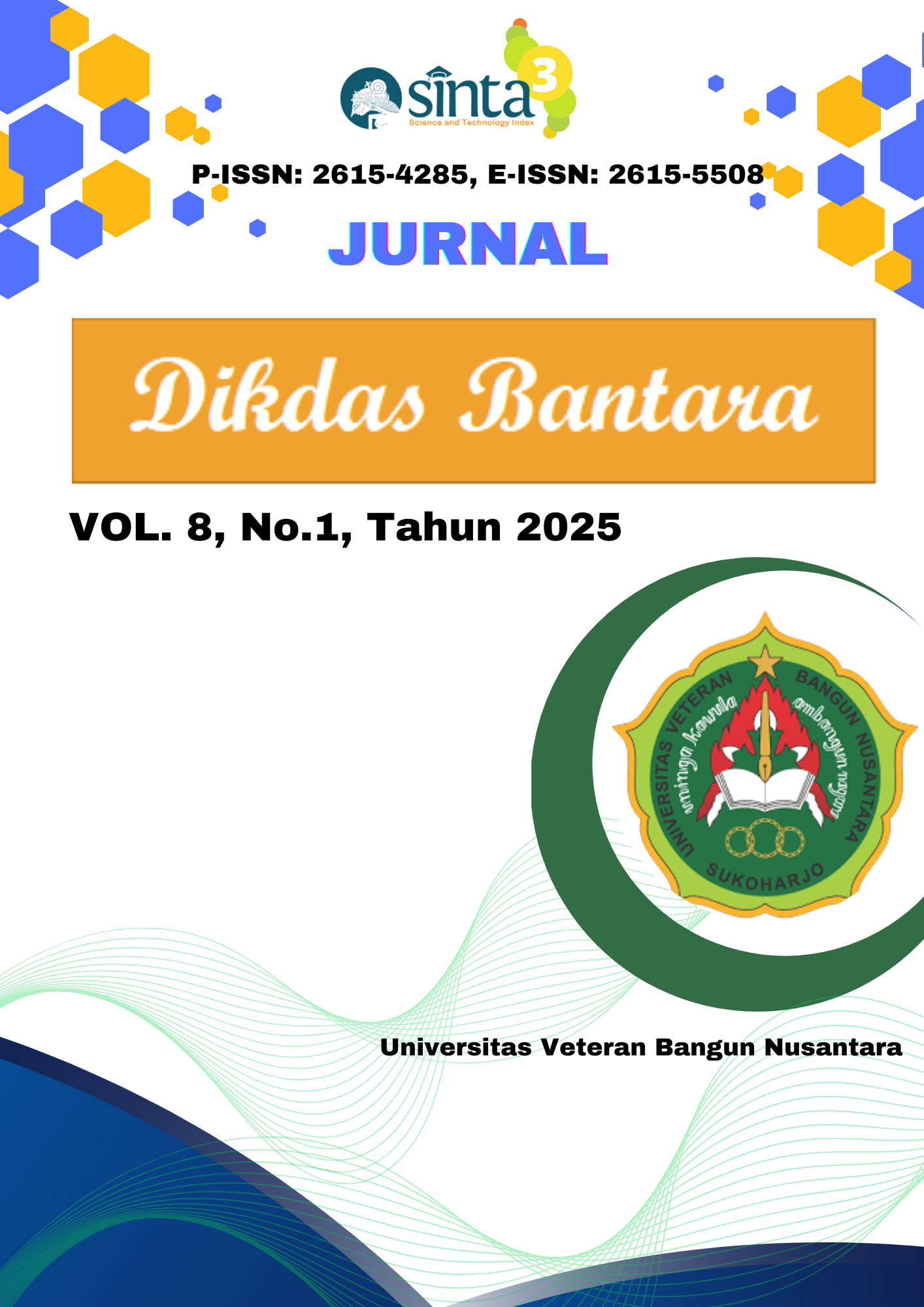IMPROVING STUDENTS' SCIENCE ATTITUDES AND SKILLS THROUGH LEARNING SCIENCE VIDEO-BASED SKELETAL, MUSCLE AND JOINT MATERIAL WITH PROJECT BASED LEARNING METHOD (PJBL)
DOI:
https://doi.org/10.32585/dikdasbantara.v8i1.5742Abstract
The low interest of students in science subjects such as the skeleton, muscles, and joints requires innovative strategies to optimize learning activities. This study aims to improve students' attitudes and science skills through learning about the skeleton, muscles, and joints based on science videos using the project-based learning (PJBL) method. The research was conducted at SD Negeri 61 Banda Aceh with a population comprising all students at the school. The research sample consisted of 28 students selected using purposive sampling techniques. The type of research used was experimental with a one-group pretest-posttest design and a quantitative approach. Data collection techniques included questionnaires and tests, while data analysis techniques used paired t-tests. The results showed a significant increase in students' attitudes and science skills after project-based learning (PJBL) using science videos. The average attitude score increased from 60.18 to 74.91, with variance decreasing from 31.45 to 22.45, and a t-statistic value of -28.34. Science skills also increased from 72.09 to 93.56, with variance decreasing from 33.25 to 31.39, and a t-statistic value of -53.17. In conclusion, both variables showed a strong correlation between the pretest and posttest with a p-value much smaller than 0.05, indicating that the applied method is effective in improving students' attitudes and science skills.
Downloads
Downloads
Published
Issue
Section
License
Copyright (c) 2025 Nola Fajria, Siti Mayang Sari, Lili Kasmini

This work is licensed under a Creative Commons Attribution-ShareAlike 4.0 International License.
The copyright to this article is transferred to Jurnal Dikdas Bantara if and when the article is accepted for publication under Creative Commons Attribution-ShareAlike 4.0 International License. The undersigned hereby transfers any and all rights in and to the paper including without limitation all copyrights to Jurnal Dikdas Bantara. The undersigned hereby represents and warrants that the paper is original and that he/she is the author of the paper, except for material that is clearly identified as to its original source, with permission notices from the copyright owners where required. The undersigned represents that he/she has the power and authority to make and execute this assignment.We declare that:
1. This paper has not been published in the same form elsewhere.
2. It will not be submitted anywhere else for publication prior to acceptance/rejection by this Journal.
3. A copyright permission is obtained for materials published elsewhere and which require this permission for reproduction.
Furthermore, I/We hereby transfer the unlimited rights of publication of the above-mentioned paper in whole to Jurnal Dikdas Bantara. The copyright transfer covers the right to reproduce and distribute the article, including reprints, translations, photographic reproductions, microform, electronic form (offline, online), or any other reproductions of similar nature. The corresponding author signs for and accepts responsibility for releasing this material on behalf of any and all co-authors. After submission of this agreement signed by the corresponding author, changes of authorship or in the order of the authors listed will not be accepted.
Retained Rights/Terms and Conditions
1. Authors retain all proprietary rights in any process, procedure, or article of manufacture described in the work.
2. Authors may reproduce or authorize others to reproduce the work or derivative works for the author’s personal use or for company use, provided that the source and the Jurnal Dikdas Bantara copyright notice are indicated, the copies are not used in any way that implies Jurnal Dikdas Bantara endorsement of a product or service of any employer, and the copies themselves are not offered for sale.
3. Although authors are permitted to re-use all or portions of the work in other works, this does not include granting third-party requests for reprinting, republishing, or other types of re-use.



















